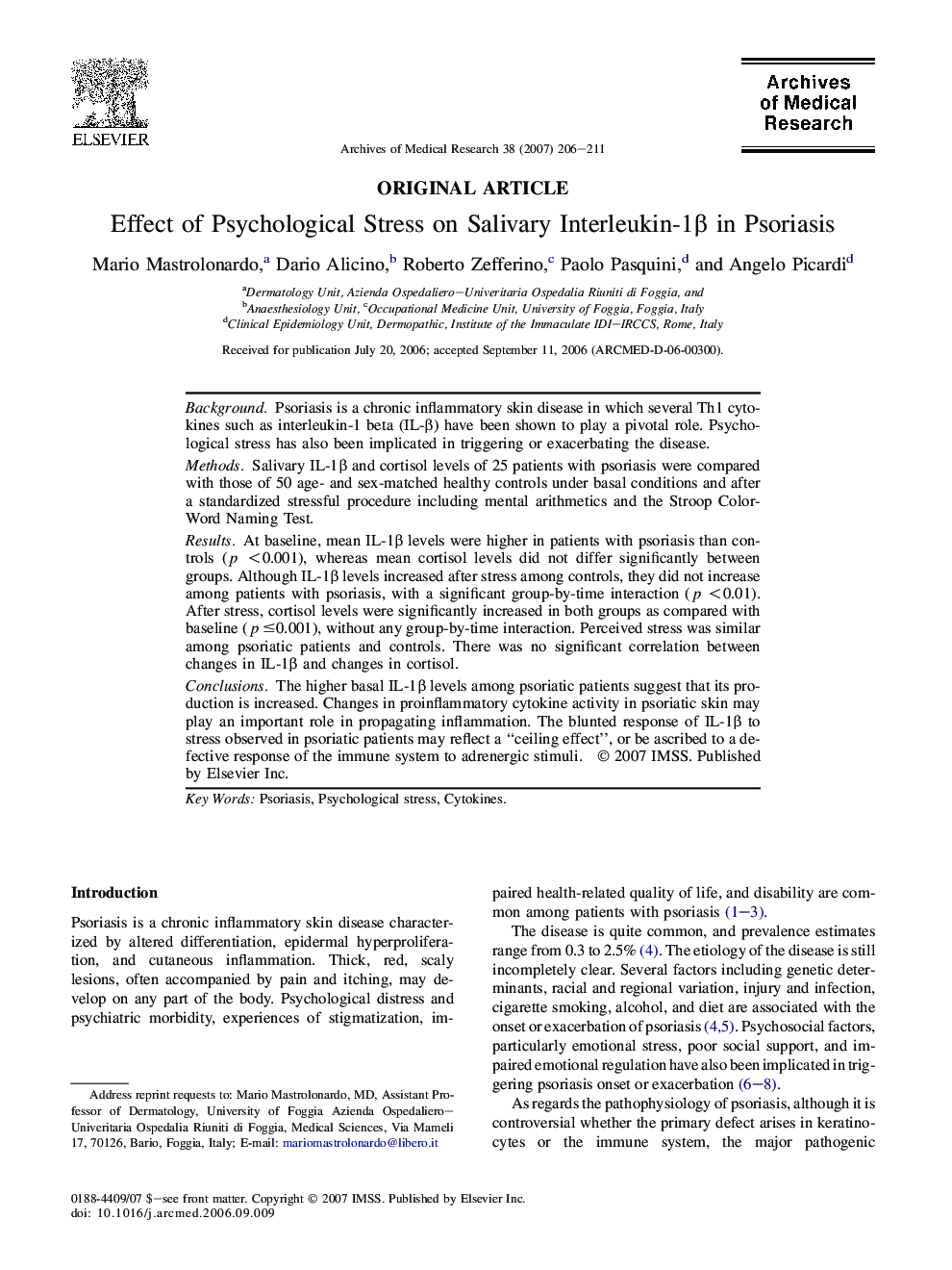| Article ID | Journal | Published Year | Pages | File Type |
|---|---|---|---|---|
| 3447458 | Archives of Medical Research | 2007 | 6 Pages |
BackgroundPsoriasis is a chronic inflammatory skin disease in which several Th1 cytokines such as interleukin-1 beta (IL-β) have been shown to play a pivotal role. Psychological stress has also been implicated in triggering or exacerbating the disease.MethodsSalivary IL-1β and cortisol levels of 25 patients with psoriasis were compared with those of 50 age- and sex-matched healthy controls under basal conditions and after a standardized stressful procedure including mental arithmetics and the Stroop Color-Word Naming Test.ResultsAt baseline, mean IL-1β levels were higher in patients with psoriasis than controls (p <0.001), whereas mean cortisol levels did not differ significantly between groups. Although IL-1β levels increased after stress among controls, they did not increase among patients with psoriasis, with a significant group-by-time interaction (p <0.01). After stress, cortisol levels were significantly increased in both groups as compared with baseline (p ≤0.001), without any group-by-time interaction. Perceived stress was similar among psoriatic patients and controls. There was no significant correlation between changes in IL-1β and changes in cortisol.ConclusionsThe higher basal IL-1β levels among psoriatic patients suggest that its production is increased. Changes in proinflammatory cytokine activity in psoriatic skin may play an important role in propagating inflammation. The blunted response of IL-1β to stress observed in psoriatic patients may reflect a “ceiling effect”, or be ascribed to a defective response of the immune system to adrenergic stimuli.
